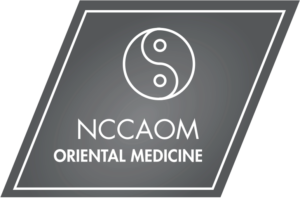Not knowing what’s going on with our bodies when health challenges arise can be scary and disorienting. An over-reliance on the established authority of our medical system along with cultural biases and tendencies that lead us away from connection with ourselves has led to a crises of confidence. People grasp for answers that oftentimes aren’t even possible. On a podcast I listen to often called Qiological, the host spoke of his patient who said to him, “I don’t care if it’s cancer, I just want to know what’s happening with me.”
Having a diagnosis and a direction to go in the form of a treatment plan can certainly be comforting but what happens when testing, screening, imaging, etc., all come back inconclusive? What makes matters worse is when patients are treated with rudeness or disdain, or when their symptoms are dismissed as being “all in their head”. These kinds of things happen all too frequently. Suffering begets more suffering, all based on a fear of the unknown.
As stated above, health challenges can be scary. People want someone to tell them “I know what’s going on with you, I understand it, and it can be treated like this”. In her outstanding book “Natural Causes”, Barbra Ehrenreich explores this topic of how we engage with the medical system in all its complexity with humor and honesty. A big problem here is that most modern Americans have only the Western medical system to turn to, or only choose to put their trust in, but that system just tells one story of who you are. There is so much more to you than what an MRI or a blood test says.
Chinese Medicine, though more holistic in nature, also just tells one story. Ultimately there are many different paths to health and wholeness. One that our society neglects and in fact actively opposes is the path toward self-knowledge and self-connection. It would behoove us to have this conversation on a cultural level. The book “The Myth of Normal”, the latest from someone I admire deeply, Dr. Gabor Mate, is an attempt to address this, among other things.
I see first-hand how these stories can spin people out and how they prevent people from getting answers or guidance from other sources. One recent patient was speaking to me about her digestive issues, clearly anxious and frustrated with her experience thus far. Doctors hadn’t been able to provide answers, but friends that she spoke to pointed to other possibilities. Could it be an ulcer? Could it be celiac? Could it be SIBO? Where could she go to get these things diagnosed? She was so worked up that I had to ask a simple question (“do you ever feel cold in your abdomen?”) more than once for her to even begin to understand what I was saying. It must have confused her as to why I even cared about something so trivial.
None of this should be misconstrued as judgement towards working with doctors or trying to find answers and seeking help. The medical system has access to lifesaving therapies and most if not all of us have benefited at some point from what it has to offer. Medical decisions are multifaceted and personal and I never have and never will discourage someone, either a patient or a loved one, from taking a path they feel is right for themself. What I’m suggesting is that we understand health problems and solutions in a different context and cultivate both a closer connection with our own bodies and a sense of being at peace with the unknown.


